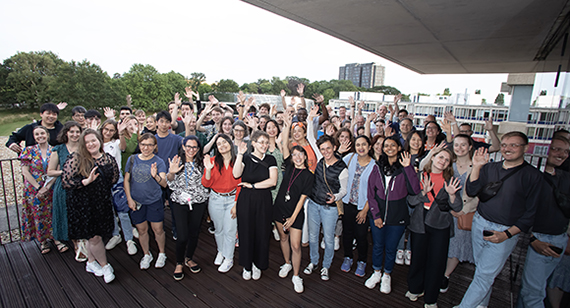Please note: This course will be taught in hybrid mode. Hybrid delivery of courses will include synchronous live sessions during which on campus and online students will be taught simultaneously.

Richard Morey is a Reader in the School of Psychology at Cardiff University. In 2008, he earned a PhD in Cognition and Neuroscience and a Masters degree in Statistics from the University of Missouri. He is the author of over 50 articles and book chapters, and in 2017 he was awarded the Federation of Associations in Behavioural and Brain Sciences Early Career Impact award on behalf of the Psychonomic Society. His work spans cognitive science, where he develops and critiques statistical models of cognitive phenomena; statistics, where he is interested in the philosophy of statistical inference and the development of new statistical tools for research use; and the practical side of science, where he is interested in increasing openness in scientific methodology.
Course content
In recent decades, there has been an explosion of interest in Bayesian methodologies in the sciences. There are several reasons for this recent interest: first, Bayesian methods often yield easier-to-interpret answers to statistical questions than classical methods; and second, Bayesian methods are applicable in situations where classical methods are difficult or impossible to implement. In this course, you will learn the basics of practical Bayesian data analysis.
Course objectives
The course will begin with the theory behind Bayesian data analysis, and move toward simple, common models in the social sciences, like t tests, ANOVA, and regression. From there, we will learn about more complicated models and how these may be fit to the data. Special attention will be given to Markov Chain Monte Carlo (MCMC) methods, which give Bayesian methods their immense flexibility and power. Using software, the power of MCMC methods are available to researchers who are not specialists in Bayesian methods. This class will give you the tools to fit a wide variety of models easily, though the use of the JAGS and stan software.
Course Prerequisites
A working knowledge of probability theory is assumed for this class. In addition, knowledge of common statistical models used in the social sciences is necessary , including t tests, ANOVA, and regression. A familiarity with more complicated models such as logistic regression will also prove helpful. Finally, a basic knowledge of the R statistical environment, which will be extensively used in the course, will be very helpful. For many methods, we will use JAGS or stan to fit models.
Background reading
Gelman, Carlin, Rubin, and Stern’s classic Bayesian Data Analysis,
Jackman, S. Bayesian Analysis for the Social Sciences (Wiley, 2009)
Lee. Introductory Bayesian Statistics.
Required text – this text will be provided by ESS:
McElreath, R. Statistical Rethinking, 2nd Edition (CRC Press, 2020)
Background knowledge required
Statistics
OLS = moderate
Computer Background
R = moderate
Maths
Calculus = elementary
Linear Regression = moderate


